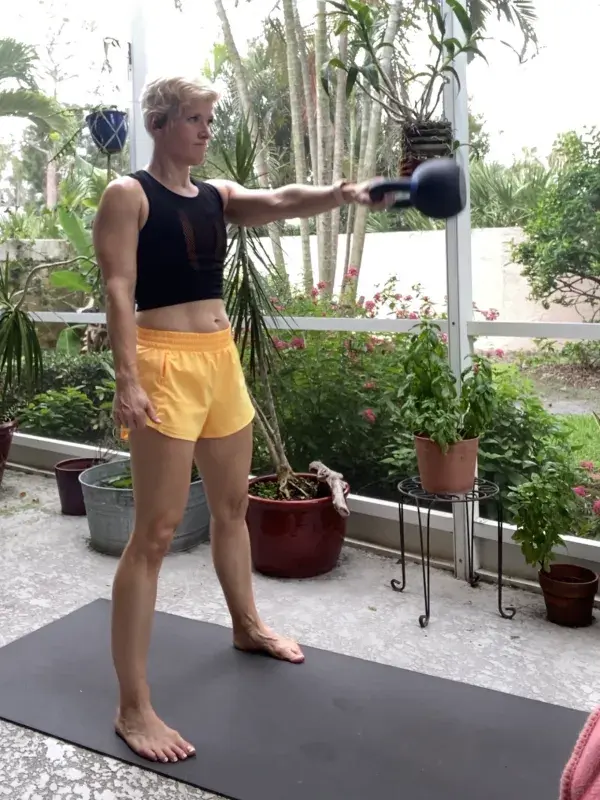don't call it a workout
- Laura Wenger
- Jun 30, 2021
- 3 min read
Updated: Mar 27, 2023

It’s Not Exercise, It’s Not a Workout, It’s Training (here’s why)
When I talk about the kind of work that I do, or how I move my body, you might notice that I never refer to my “workouts” or “exercise.” This is a deliberate choice that speaks to the kind of work that I do and the ways in which we can disrupt what Decolonizing Fitness calls “toxic fitness culture.” Let’s take a look.
Etymology of “Workout:”
First, it might be helpful to look at the origin of these terms. The term “workout” was first seen in 1909, where it was used to refer to a “boxing bout for training,” from work (v.) + out(adv.). By 1922, there’s a general sense of “workout” meaning a “spell of strenuous physical exercise.”
Strenuous physical exercise is only one kind of training, & it’s naturally exclusive. When we think “workout,” most of us imagine a specific type of training. I think of sweat, and movement, and being tired afterward. This is great, for some bodies, some of the time. Not every body is capable of this type of strenuous physical activity.
Additionally, all bodies need a variety of training. Strength and conditioning are important, but we also need to train mobility, dexterity, speed and agility. Our brains need training, too, as do our nervous systems. We may need to train our ability to rest or recover (yes, that’s really a thing).
The terms “exercise” and “workout” are concepts from the fitness industrial complex.
Our “wellness” culture is a reflection of our larger

society. It promotes certain body types (younger, smaller, healthy, strong, able-bodied, cisgendered, heterosexual) as more worthy. It also denies access to services for those who are less worthy, either explicitly (such as health care disparity) or implicitly (via marketing, etc).
We’ve come to associate “exercise” and “working out” with the idea of changing our bodies to be more culturally acceptable: healthier, thinner/smaller, stronger.
Healthier bodies are not morally superior to less healthy bodies.
Thinner bodies are not inherently better than fatter bodies.
Strong bodies are not more worthy than weaker bodies.
But these are commonly held beliefs.
There are many reasons to move your body that have nothing to do with weight loss or shape change.
Movement is fun & can feel good.
It supports mental health.
Maybe you want to feel stronger, more coordinated, or learn a new skill.
Some people like to share time with friends & family doing movement (waterskiing, going for a walk, dancing).
As you can imagine, this concept is especially important for folks who are recovering from eating disorders.
We can call “workouts” and “exercise” something else because it can be something else.
If I told you I was going to exercise or work out today, there’s a cultural implication about morality (exercise is something we “should do”), weight loss, calorie burn, along with ideas about what that might look like: running, weights, the gym.
“I’m going to train today” has less cultural weight and can mean that I’m training all kinds of things: my body, my mind, my ability to stand on my head or to lift my big toe by itself.
“I’m going to move today” can include all kinds of things, from gardening to painting to a long, contemplative walk.
“Training” and “Movement” are available to everybody.
While not all bodies have equal access to the commonly held concept of “workout” or “exercise,” all bodies are capable of training and moving in their own ways.
For those who struggle with the idea of “exercise” or “working out,” finding your own ways to move or train can be really liberating.
Words are important, but choice is important too.
I have many clients, friends and mentors who use the terms “workout” and “exercise.” Each of us can mean something different by these terms. If it feels important to you to use these words, then I am 100% in support of that. For my personal practice and my work, this is just one way that I have chosen to un-settle myself (as the descendant of white settlers, I “unsettle” rather than “decolonize”) and to work on my own inherent bias.



Comments